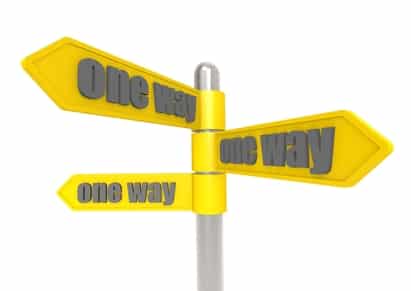
Great customer service is one of the cornerstones Chick-fil-A is built on. I would love to tell you that we never have any complaints from customers, but that would not be true. Sometimes we miss the mark. When that happens, we need to respond quickly and act compassionately. We have a training that involves the acronym: L.A.S.T. We can also use this in everyday life. How many times have you had a confrontation with a co-worker, friend or family member? How did that interaction go? When you left, did you feel like you could have handled it better? Use LAST!
Listen. Apologize. Solve. Thank.
Listen.
Listen patiently. Listen attentively. There’s nothing frustrating like having a thought or ideas and having the listener ignore you or maybe not quite “connected”. Listen to what they have to say. Don’t be in a hurry to make excuses. Listen first. This sets the stage for turning the conversation more productive. Frustration can also be on your end later. How many times have you been frustrated at not getting all the information and realize, you were the one that didn’t effectively listen to all the facts? Listen patiently. Listen attentively.
Apologize.
Apologize for what happened. Don’t take it personally. It’s not likely something you did directly, but apologize anyway. More often than not, the listener needs to hear you recognizing what happened and to take responsibility. “I am so sorry!”
Solve.
The next step is to actually solve the problem. That’s the least we can do. Create a systematic solution in a creative and loving way. Did you offend the listener? What could you do differently in future conversations? How can you make the interaction better and create a better understanding for the next time you need to have a crucial conversation? Most of the time the listener wants… wait for it… to be heard and apologized to (“Listen” and “Apologize.) No excuses. Listen. Apologize. Then solve the problem, going the extra mile whenever possible.
Thank.
Thank them? Absolutely. Many times a listener will not say anything further to us, but if they bring something negative to our attention, that is an opportunity for us to get better at serving them. Yes, I said serving.
Proverbs 15: 31-33
“If you listen to constructive criticism, you will be at home among the wise. If you reject discipline, you only harm yourself; but if you listen to correction, you grow in understanding. Fear of the Lord teaches wisdom; humility precedes honor.”
We should always be serving others with understanding. That alone deserves a “thank you!” That heartfelt gratitude on our part may be all it takes to turn them from frustration to acceptance and appreciation.
My wife, Noell, says a phrase all the time: “Would you rather be right or happy, because you can’t always be both!” We even have an exercise at The Journey Training about being right or happy.

I watch people. Not the creepy kind of watching – just people watching. Lately, I’ve noticed how people react to and contribute to their surroundings. It is amazing to see this universal truth: Those who lead lives that are filled with drama, chaos, and turmoil seem to attract those very things. Those who lead lives filled with peace, love, and acceptance also attract those things. So what does this mean?
Sowing is a popular subject!
There are tons of books written on this subject. Just do a Google search for positive energy or sowing and you’ll see a huge list of speakers, books, and blogs. It’s a universal truth that what you sow will come back at you in spades! So think about it; where are you sowing your energy? How do you spend your time? What are you looking at on the internet, choosing for music, or choosing to read? Is it positive and uplifting or negative and full of darkness? Does it bring you momentary happiness that fades or does it fill your life with happiness that lasts? The truth is in your focus – what you choose to sow.
Reaping your own bullet
Once I fell into a depression. It lasted about a year and the cause was gossip. You see, I had spread gossip about someone which in turn hurt someone else. My personality didn’t allow grace for these kinds of mistakes, and this was a huge mistake! I had damaged a relationship between two people, and they weren’t even the subject of my gossip.
I was raised to believe that if you had gossip on someone, you had power over them. My mistake almost cost me my life. You see, at that time my children were the only thing that kept me from wishing I was gone. I was prescribed medication and started digging my way out of the darkness, but it eventually took a change of perspective and atmosphere as well. I’m sure you can relate – I couldn’t forgive myself. And I didn’t know what grace was, so I never even considered that God could forgive me. In fact, I really didn’t know God at the time so I really didn’t care…
For a while, I wallowed in it and couldn’t see a way out! And I sure couldn’t see how to find happiness. I was stuck; all I could see was the mistake. I surrounded myself with things, habits, and people that supported my view of myself. These things all confirmed my belief that I was worthless, nobody wanted me, and I wasn’t welcome. But these were LIES! The enemy wants you to believe that those lies are your reality. He is the author of deception, and he wants you to see no hope.
Grace is free – and frees others
Later, I met a man named Nick who taught me something. During his teaching on God’s grace, I sat in the back silently crying. I had never been taught that Jesus came to give grace and forgiveness. Deep down I knew that acceptance and salvation had nothing to do with rules, even though rules were what I’d been taught as a child. I was taught that to be loved, you had to be good; that salvation was hard and full of rules, and if you messed up you were no longer worthy of salvation!
What I learned is that the truth is that grace itself proves that we are all loved, and that we are all different by design! God made each of us unique – warts and all! Grace gives us permission to be who He meant us to be. Salvation isn’t about judgement, but about relationships! And grace gives us freedom!
Change first what you sow
So what does this mean? If you are struggling with your emotions, think back over the last couple of days. Have you sung praises to God, or wallowed in deep despair? Have you surrounded yourself with people and actions that lift you up or tear you down? Are you proud of how far you have come or still looking at how far you have to go?
My suggestion is to focus on the positive things, and on the positive people. Be proactive and bring the positive into your life! Be willing to do things that are out of character – go dance in the rain, find your inner child and do something you haven’t done in years – something that used to bring you joy! Start a gratitude journal. Find things to be thankful for every day. And then twice a day, and then every hour! You’ll begin to see the world differently – as God sees it! Take a step toward your dreams. It doesn’t matter how large or small. Take the time to sit and watch a sunrise, or take a friend to see God’s painting in the sky. Take the time to listen to the rain and notice its peace. Take the opportunity to watch God’s perfect timing. Give yourself Grace, forgive yourself; God already has! Know that God uses all things for good, and even your mess has a purpose; once you escape it, you’ll have a story of survival that will help others!
If you are surrounded with negativity, maybe a look in the mirror is required – a really good look! What energies are you sending out? How do you react to the small things? Are you proud of your accomplishments or a defeatist in the fact that you didn’t do more? Did you achieve your dreams or complain about how tired, sore, or time crunched you are? Do you have a mentality of scarcity or one of abundance? If you can’t see the positive in your life, ask someone who exhibits the positive traits you desire. And listen to what they have to say – really listen. Then, you’ll be a step closer to attaining the freedom you want!
Hundreds of people have found freedom through The Journey Training by letting themselves off the hook. Perhaps The Journey Training can help you begin a path of grace for yourself – and in turn set you on a course towards your dreams!

In 2013, I attended Shades of Hope, an addiction recovery center specializing in eating disorders. There were bulimics, alcoholics, anorexics, and then there was me. How did I end up here? The answer might surprise you: control.
A few years earlier, I was in Las Vegas speaking at the Lifestyle Intervention Conference. Tennie McCarty, the founder of Shades of Hope, was speaking. I was eager to hear her, as she had reached out to me about endorsing her book. I was interested in finding more out about this lady. I sat near the back row and opened my ears. What I found was that she spoke my language! Her methods of treating addiction were much like our methods in The Journey Training – she allows you to “experience” the words she is saying.
About two-thirds through her speech, she said it: “There is only one difference between an anorexic and a compulsive overeater, but other than that they share exactly the same traits. Control: one controls by restricting food and the other controls emotions by numbing with food. But it’s all about control.” This hit me like a ton of bricks as my mind wandered back 35 years when I was 16 and fed-up with my fat. I decided to eat nothing but salads and drink diet pop. In turn I became anorexic and lost 70 pounds that summer. I remembered my father saying, “You’re anorexic! Stop losing weight!” I had forgotten until that moment.
I had also forgotten about being 150 pounds at 5’11” tall and my large build, looking in the mirror and thinking, “Just a little more.” I still thought I was fat, and I was going to control this thing until I was satisfied. Looking back over my life, there’s only been a few times I’ve been satisfied with my weight, and it only lasted a few weeks. I’d soon return to my dismay, making my plans of how I’d control it.
Addicts are control freaks
Yup, you heard me right! One of the first things Tennie said was, “Your addiction is about control. We are control freaks, and it might seem strange, but you’ve got to give up control to gain recovery.”
I didn’t get it at the time, and the reason I am writing this is I had a revelation of what she was saying. Life is giving; it will give you freedom and time to figure it out. When you “fail” a life test, God always will allow you to return and re-take the test, giving you the opportunity to learn a lesson you need to learn. You might think how could a loving God let you go through pain and risk instead of giving you specific direction to change your life? The revelation I had is it’s all about control – my control – that I have to be willing to surrender in order to gain the freedom God wants for me.
Everyone controls
When I was young, my parents often gave me advice and instruction. I often thought they were just trying to control me. This is why I can now sympathize with my kids David and Mary Claire when they say, “I know, I know! You don’t have to tell me!” Inevitably, they will test my theory and learn a lesson. I hope that someday they’ll understand that anything I tell them is intended for their good, and not about my control over their lives.
Unfortunately, that lesson they learn often comes with a little pain. That’s the “experience” I was talking about in the beginning of this blog. You can be told the stove is hot, but until you experience it you don’t truly believe it. I can describe feeling a cool breeze on your face on a hot day, but until you feel it yourself it’s only words – knowledge in your head. But once you feel it, it makes the journey from your head to your heart and becomes a belief. Someday my kids will believe that I have their best interests at heart. It just may take a while.
Prayer and control
That’s the revelation I had: that my prayers are actually my willingness to let go of control for my life, and asking God for His plans! It’s a belief that God has my best interests at heart. If I listen for His plans and am willing to forego my own, I’ll be a whole lot better off. For years I’ve been the “prodigal son”, not quite believing Him – trying to control my own life and addiction.
“It’s just a choice” is what I often hear from people, and I respond with, “No, it’s an addiction – a disease.” Well, they were right in one sense: that giving up control is a choice. It’s the first steps in the 12-step program! I can’t, God can, ask God. That’s prayer. Asking God to reveal your next step, and being willing to release control to Him (Proverbs 16:9). All these years with God, I’ve been my kids – “I know, I know! You don’t have to tell me!” Well, things are about to change!
The first 3 steps of AA:
- We admitted we were powerless over alcohol (or food, drugs, sex, etc.)—that our lives had become unmanageable.
- Came to believe that a Power greater than ourselves could restore us to sanity.
- Made a decision to turn our will and our lives over to the care of God as we understood Him.

Most of my problems in life never happened. I worry about things before a problem exists! I’m sure many can relate to this, but we all have real problems that do exist, and I’ve found that my narrow-mindedness is often the reason I get stuck in my problem.
I can’t be wrong
Most of the time when we hear something that goes against our beliefs, we automatically defend our position. It’s a natural trait. We were born to be right! But sometimes, being right can also cause you to stay wrong. Have you ever fought for your point of view only to finally look up the facts and realize you were wrong? I do it often. And it always reminds me of the wasted time I spent defending my wrong beliefs.
Just last week I was hiking with my boot camp on Turkey Mountain in West Tulsa. I was so sure we were supposed to go straight, but Mary said, “I think this is where we turn right.” I immediately began explaining why I knew we were to go straight. She gave in and we got lost. Turned out that we were supposed to turn right. And our hike ended up lasting longer than either of us expected or wanted! After the hike, she told me, “I saw a paint mark on that tree, and that’s why I knew we should have turned right.” I said, “Why didn’t you say something?” She answered, “I did, but you were so busy explaining why you were right that you didn’t hear me.”
Wrong can be beautiful.
There are times in life I wished I was wrong. When I thought I’d overdrawn my bank account, I prayed to be wrong; and I was! I’m wrong, Awesome! Let me explain another way.
If you are too narrow-minded to consider the possibility that you may be wrong, could you be deterring your own success? I see it every day; and I see it every day because I’m often guilty of it! You see, when there is a problem or a “road block” to something, it wouldn’t be a problem if you knew exactly how to solve it. First, you must open your mind and consider all of the possibilities. Sometimes, you may be looking at something from a wrong perspective – or from a viewpoint in which you just can’t see the answer – even when the answer is staring right at you. Many times our past experiences cause up to make up the story that we’re right when we’re actually far from it!
When Arthur and I get together, he tends to get frustrated with me. The nature of my job for the past 35 years has been to find out what’s wrong with something and fix it. I am a Land Surveyor and a musician. If I let a mistake go by, it could cost millions – or make a song sound really bad! So I have become very good at seeing the one thing – or note – that’s wrong, and it sometimes impairs my ability to see the things that are right. This can have value, but it also can be detrimental!
Arthur hates it when he brings an idea to the table and the first thing I say is, “Well, that won’t work because…” He says it frustrates progress. Why? Because it’s not whether the idea will work or not, but sometimes the most beautiful and powerful things were created through something that didn’t work or was a mistake – or perhaps just outside the box. If we are determined to immediately point out the flaw, something incredible might be forgotten before a different perspective can be seen and an amazing solution can come to light. Sometimes you need to stare at a problem for a while to see the solution. I tend to move on to a solvable problem that my intellect agrees with and leave the problem I’m so sure won’t work behind. And the result is often a missed opportunity. I’ve learned with Arthur to say, “That just may be crazy enough to work!”
Wrong can be AWESOME!
How in the world can being wrong be awesome? When you have an open mind. There have been few successes without failure first.
WD-40 hit store shelves in 1958. Almost everyone has seen WD-40 at the store, and there are literally thousands of uses , but the most important thing to know about WD-40 is what the name stands for: Water Displacement perfected on the 40th try. Yes, it took 39 failures to create one of the world’s most known and best-selling products. And it was perfected because of tenacity and open-mindedness – being willing to accept that they were wrong, and looking for other solutions – often where they didn’t expect.
In The Journey Training, we teach that seeing others’ opinions and perspectives is a vital part of life. Sometimes, the perspective of others is exactly what we need to see to choose differently. Each month we see people learn that they are not always right, and that’s a good thing! Sometimes, being willing to see differently is all someone needs to find a solution to the problem they’ve been facing for years.
One of the most shared traits of history’s richest and most successful people is open-mindedness. And that same trait is shared in some of the best marriages, happiest people, and most successful goal achievers. Instead of leaving your next problem behind or choosing to fight for your belief, why not open your mind and choose to see it differently. You just might find the solution you’ve been looking for!

Have you ever noticed that not every person is wired for achieving goals?
Many successful people each year pull away and write out their goals. If I was telling you to do that here is what I would say:
Use the “Lower Level Doofus Method.” Keep it simple – especially if you have not done this before, or if you have done it over and over and it has not worked. At The Journey Training we call this the definition of insanity: doing the same thing over and over and wondering why it does not work. Even Albert Einstein agrees with me on that.
In some cases it is more important that you actually achieve your goal than what the goal itself is.
Make it measurable
Example: I want to lose weight
Well, having a great BM would certainly take care of that, right? However, I am certain that’s not what you’re looking for. So let’s break it down.
Lower Level Doofus Method
- What? I want to lose 10 lbs.
- When? over the next 2 month.
- How? This is where people get crazy. They say “I will walk 1 hour a day every day.” Come on, lets be realistic. You get winded going up the stairs on your back porch, and now you’re saying tomorrow your going to do this? Dumb it down a little…
- How? Change how I eat.
- How? Eat healthier.
- How? Have better food in the house.
- How? Empty the refrigerator and pantry of all junk food. Here it is! These are the simple goals you should set.
Lets try this again.
My goal is to lose 10 lbs over the next 2 months.
- Step one. Empty the refrigerator by friday of this week.
- Step two. Go to the store and get healthy food. (assuming you know what that is)
- Step three. Cook healthy food.
It looks simple, but many of us make it too complicated. HERE is the secret sauce:
Who is holding you accountable?
You? Seriously, if that is the case, how come you did not hit this goal 5 years ago?
You want to hit your goal? Then shout it, SHOUT IT! SHARE IT! This is why hiring a trainer works. We feel like we have to go see him because were paying him, and then we don’t want to share how we did not hit our goal.
Our number one need is acceptance.
Because of that, we naturally don’t want to share that we are trying something, just in case we don’t hit it. So if you really want to hit your goal, share it. Tell as many people as you can about it. You will find that we will do whatever it takes to not be embarrassed. We will do whatever we need to in order to feel accepted. There is a site called Thrive15.com and one of the mentors, Dr. Z, says when it comes to breakfast, be the pig – not the chicken. You see, if you’re having bacon and eggs, the pig is committed, while the chicken is just a participant.
Here are the 3 things you need to do to achieve your goals.
- Use the Lower Level Doofus Method on your goals.
- Get an accountability partner.
- Be the pig, not the chicken.
Page 8 of 9« First«...56789»






